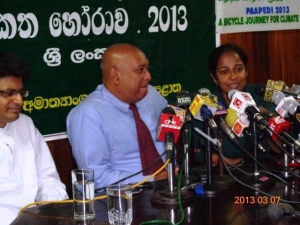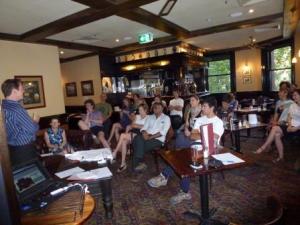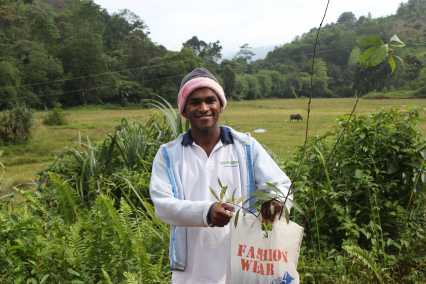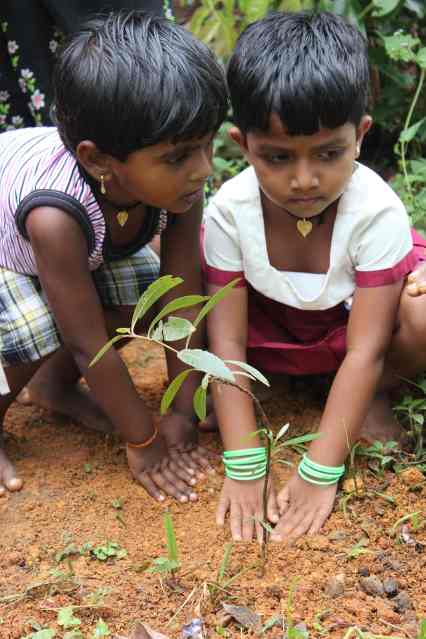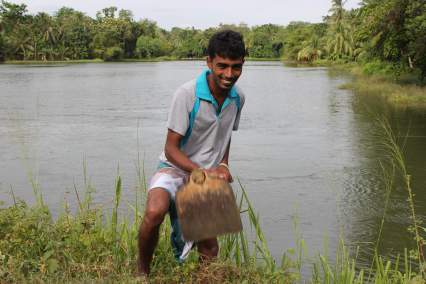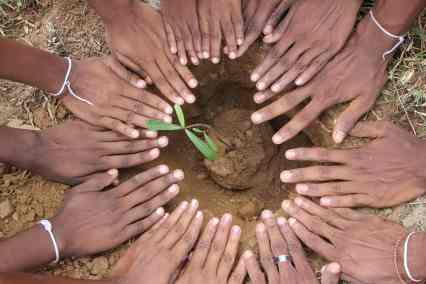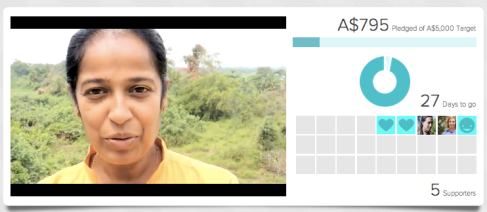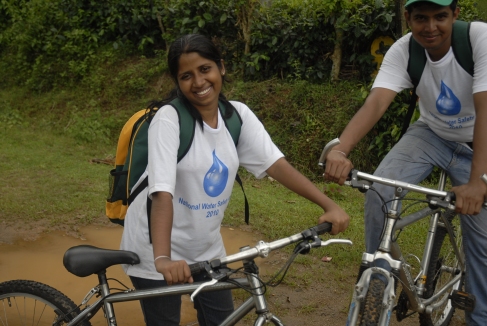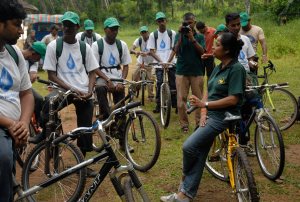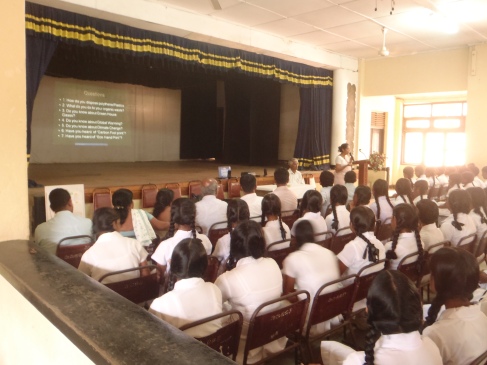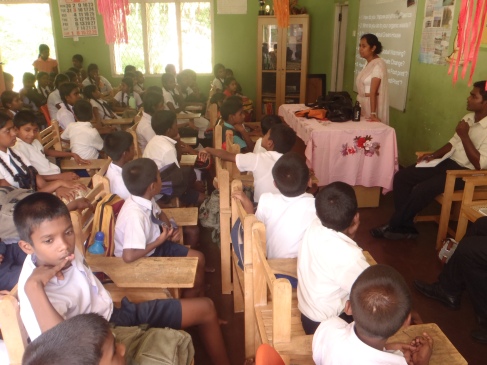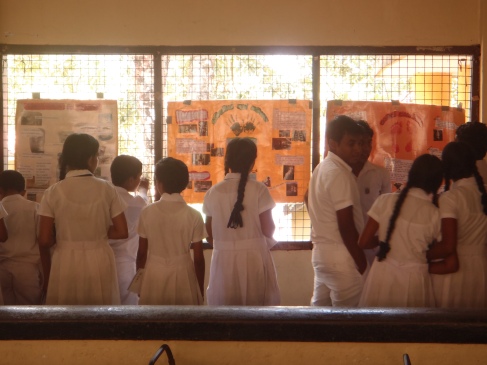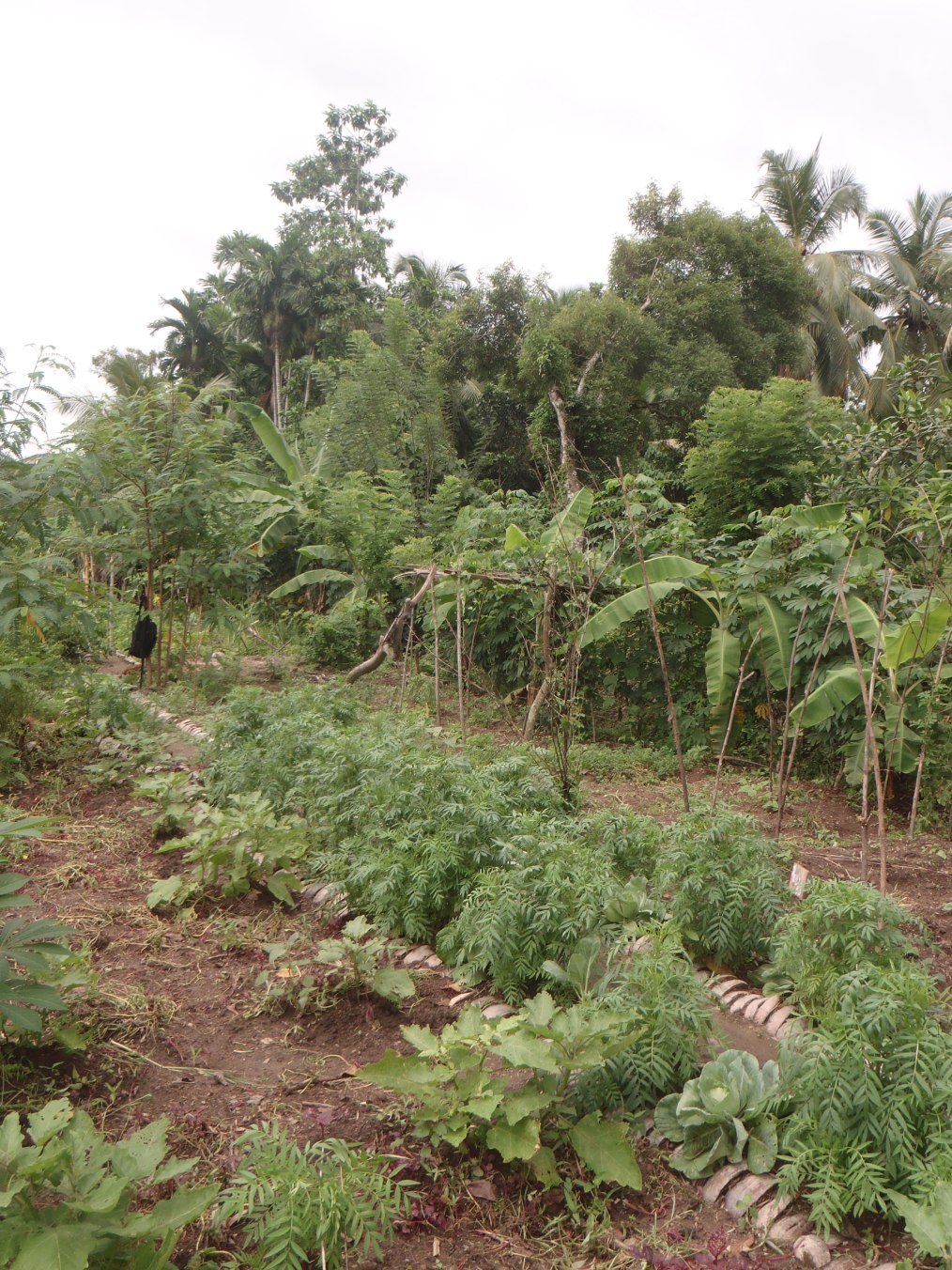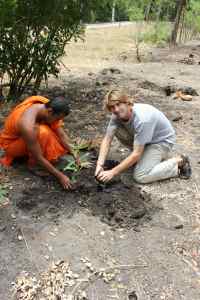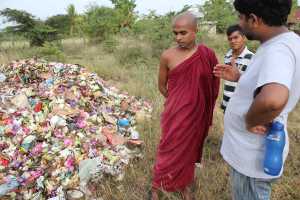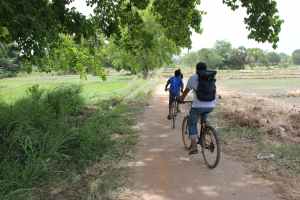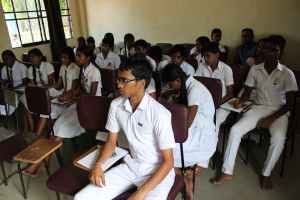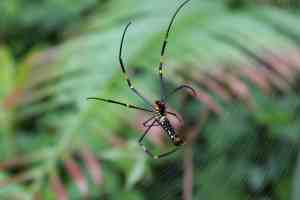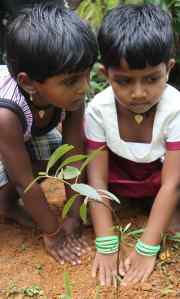Read on for some great news and photos from Sri Lanka and Australia
1. The deadline for contributing is looming
Our fund-raising campaign ends effectively this weekend. So please jump in if you intend to contribute
– midday Monday in Victoria (last day of the long weekend here)
– 6.30am Monday in Sri Lanka
– 1 am Monday in London
– 9pm Sunday New York
Go to www.pozible.com/paapedi Many small contributions will help us get over the $4,000 tipping point. We’d love to get well past this point, and on towards $11,000 – that’s our original commitment (see the budget on the main page).
2. New reward at $100
Check this one out. If you live in Victoria, join a Sri Lankan banquet with Prof David de Kretser AC, former governor of Victoria and passionate climate change advocate.
What’s happening in Sri Lanka
There will now be 26 young participants, starting the ride on Wednesday 13th March. There is a wonderful mix of young men and women – from across the country, and from Hindu (Tamil), Christian, Sinhalese, Moslem and Burgher backgrounds.
Kanchana has been on national TV once already. The largest English language paper ran a full page article on the Journey. A journalist from another paper will be accompanying the trip!
There were 22 journalists at a press conference yesterday, which was called to promote the Paapedi Journey.
Just in the last two days, two critical sponsors have emerged – costs of the bikes and helmets are now covered. Taking these costs out, JCJ still needs to get well beyond $5,000 to reach its original commitment. So please help out, with $10 or more.
On a flying visit to Sri Lanka, Martin Carlin from WattElse Solar delivered 26 solar lights to Kanchana for each rider. On Earth Hour Day, they will provide the lighting at the gathering in Colombo to celebrate the end of the Journey. Many riders are expected to converge.Here’s Martin Carlin from WattElse Solar in Australia handing over one of 26 solar lights to Kanchana – one for each rider.
And in Australia
Journeys for Climate Justice celebrated its second birthday on Tuesday 5th March at a pub in Melbourne. Kanchana joined us by skype from Sri Lanka, and really impressed with her warmth and information. Our guest speaker was Donnie Maclurcan, from Project Australia and Post-Growth Institute. He’s a real dynamo, and we loved his advice to start small – and build from the strengths of the people who connect with us.
On Thursday 7th March, JCJ held another function in Westgarth. In part, it was held here because Kanchana really touched many people when her kids Boo and Nipu attended Westgarth Primary in 2010 – 2011. We skyped with Kanchana in Sri Lanka. A great chance to catch up on lots of small, but wonderful things about the coming Paapedi trip. We also met online two of the volunteers.

